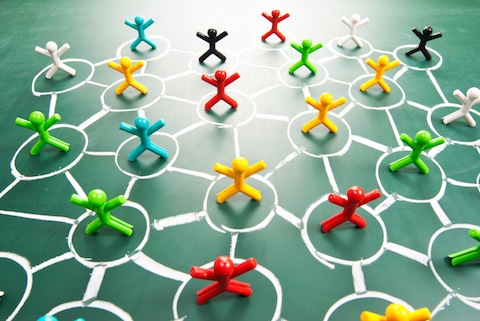We have known for some time in the diversity and inclusion space that emotional intelligence is critical to the recognition and embracing of differences. After all, interacting with others who are different from us is an emotional experience.
It has also been established that to achieve inclusion we must try to connect to things, people and concepts that are unfamiliar to us. Michael Stallard from E Pluribus Partners calls it a bond or shared identity, empathy, and understanding that move us as individuals toward group centered membership. In other words, to be inclusive we also have to be connectionally intelligent.
Erica Dhawan, the Chief Executive Officer of Cotential, a global consulting firm, has laid out the road map for individuals and organizations who want to find their path to inclusion through connectional intelligence.
Curiosity
We have to be interested in the difference. Our brain will see the difference as a threat and fight the urge to allow the difference to enter our lives. We should force ourselves to ask questions about the difference in order for it to change our perspective.
Courage
We must have fierce conversations with those who are different from us. As conversational experts William and Carolyn Hines say, we need to have fierce conversations with people we care about, don’t care about and need to care about. We should fight the urge to put off these discussions. As Fierce Incorporated, a leadership and development company claims, while no single conversation is guaranteed to change the trajectory of a relationship, any single conversation can.
Combination
Once you become curious about the difference and establish the courage to interrogate your new reality, you now are poised to make the difference work for you and your organization. As Linkage Incorporated, a leadership assessment business claims, you understand that:
• You do your best work when others who are different from you are included.
• People with different views bring valuable perspectives to our work.
• The inevitable conflict that results from managing the differences is a good thing.
Community
Now that you have developed curiosity about differences, the courage to investigate them and the ability to see how valuable they are, you now have the capacity to unite people, stimulate new ideas and develop empathy and understanding for things and people who are different from you.
Combustion
You are now at the point that you can take curiosity, courage, combination and community and make them work for your organization. You have embraced the role as a change agent and social architect for inclusion.
At the end of the day, it is not about the work, although the work is important. It is about the relationships we have through the work as we connect to a volatile, uncertain, constantly changing and ambiguous world. Who and what are you connected to?





Leave a Reply
You must be logged in to post a comment.